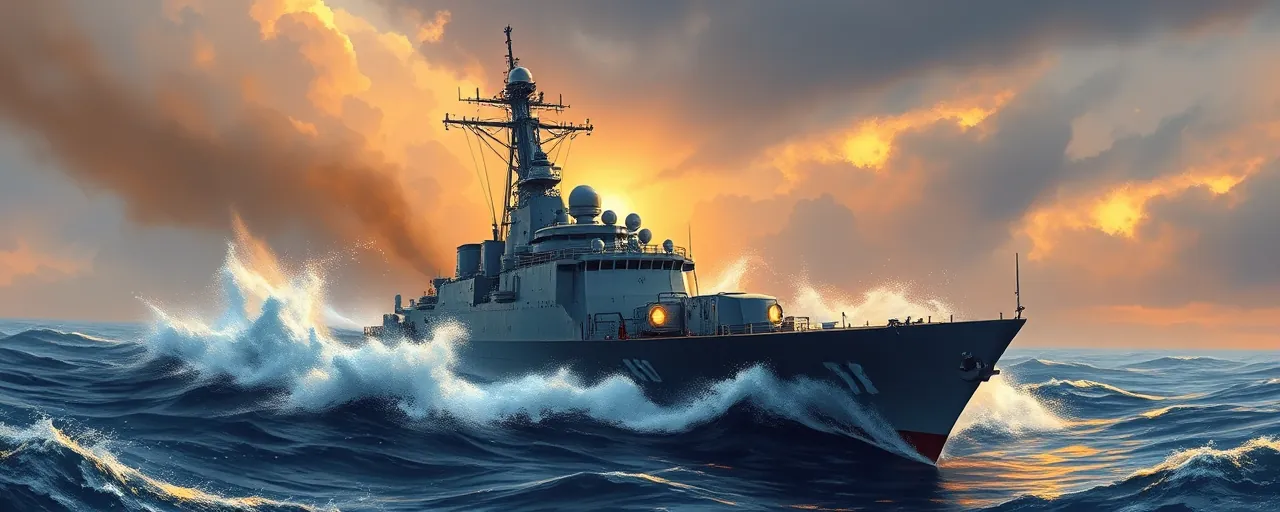A Thunderous Welcome for a Leader Who Gets It
When Defense Secretary Pete Hegseth stepped into King Hall at the U.S. Naval Academy on April 1, 2025, the Brigade of Midshipmen didn’t just clap politely. They roared. The energy was electric, a raw testament to the hunger these young leaders have for a no-nonsense voice who understands their world. Hegseth, a Princeton basketball alum turned warrior advocate, didn’t disappoint. He shook hands, locked eyes, and delivered a message that hit home: America’s future rests on the shoulders of those who grind through adversity, not the bureaucrats who dodge it.
This wasn’t some photo-op fluff. Hegseth’s visit to Annapolis signaled something bigger, a clarion call for a military that’s lean, lethal, and unapologetically American. In an era where our enemies, from Beijing’s shipyards to Tehran’s proxies, are flexing their muscles, his words to these midshipmen weren’t just pep talks. They were a blueprint for a stronger, more resilient force, one built on grit, faith, and a rejection of the soft, entitled culture creeping into too many corners of society.
Captains of Valor: Real Leaders, Real Stories
Take Joshua McGill, brigade commander and rowing team captain. This isn’t some kid who stumbled into leadership. He’s a former enlisted sailor who cut his teeth on the USS Bonhomme Richard, weathering its fiery trials before earning his spot at the academy. When Hegseth swapped notes with him about fleet life and the upcoming Princeton race in Japan, you could hear the mutual respect. McGill’s story isn’t unique here, it’s the norm. These midshipmen aren’t coddled elites; they’re forged in real-world pressure cookers, bringing that steel to their teams and, soon, our Navy and Marine Corps.
Then there’s Lysander Rhenstrom, basketball captain and future Marine. He ditched the Zoom-class chaos of George Mason for the academy’s full-contact education, prodded by a father who saw Annapolis as the gold standard. Nick Smith, boxing captain, carries a Vietnam vet granddad’s legacy in his fists and a 38-year Army dad’s wisdom in his gut. These aren’t abstract ‘leaders of tomorrow.’ They’re the real deal, shaped by family sacrifice and athletic fire, ready to take on a world that doesn’t play nice.
China’s Shadow Looms, and We’re Not Blinking
Hegseth faced the big questions head-on in Alumni Hall, and the midshipmen didn’t hold back. Jack Grygiel, a history major, pressed him on long-term strategy against the Chinese Communist Party. China’s pumping $249 billion into its war machine this year alone, churning out stealth jets and assault ships while we’re still debating budget scraps. Hegseth’s answer was pure Trump-era clarity: focus on economics, energy, and alliances to outmaneuver Beijing, not just today but for decades. It’s a vision that ditches the short-term pandering of past administrations for a hard-nosed plan to keep America on top.
Contrast that with the hand-wringing from some quarters, where policymakers fret over ‘escalation’ and push for dialogue with a regime that’s militarizing the South China Sea. That’s not deterrence, it’s delusion. China’s ‘Active Defense’ playbook and Belt and Road cash grabs aren’t slowing down for polite chats. Hegseth gets it, these midshipmen get it, and it’s why his call to build a force ready for the 21st century’s real threats landed like a gut punch. We don’t win by hoping; we win by preparing.
Cyber and Soul: The New Battlegrounds
Luc Gregoire, an aerospace engineering standout, zeroed in on cyberthreats, a domain where AI malware and quantum hacks are rewriting the rules. Hegseth didn’t dodge, he leaned in, stressing real-time cyber integration into military planning. In a world where China and Russia weaponize code to cripple grids and sow chaos, that’s not optional, it’s survival. Sergio Santander’s question about the warrior mindset got an even sharper reply: master your craft and root yourself in faith. It’s a one-two punch of practical and moral strength that no algorithm can replicate.
Some might scoff at faith in a high-tech age, but they’re missing the point. Cyber’s critical, sure, but it’s the human spirit, that unquantifiable edge, that sets our warriors apart. Look at history, from Stuxnet’s surgical strike to WannaCry’s global mess, tech shifts fast, but it’s the NCO corps and small-unit leaders, not top-down drones, that give us the win. Hegseth’s betting on that, and these midshipmen are living proof it’s a smart bet.
The Verdict’s In: Strength Wins
Hegseth’s day at Annapolis wasn’t just a morale boost; it was a line in the sand. America’s military academies aren’t churning out desk jockeys or social experiment guinea pigs. They’re building leaders who thrive under pressure, whether it’s on the court, in the ring, or facing down a Chinese carrier group. The data backs it up, athletic competition hones decision-making and resilience, family legacies fuel duty, and hands-on leadership trumps theoretical fluff every time. This is the force we need, not the watered-down version some in Washington dream up.
His parting shot, predicting four years of Navy beating Army, wasn’t just bravado. It was a dare to these midshipmen to prove they’re the tip of the spear. With enemies stacking chips and the world watching, we can’t afford less. Hegseth’s vision, echoed in every handshake and answer, is clear: a military that’s tough, smart, and grounded in what made America great. That’s not nostalgia, it’s necessity.
